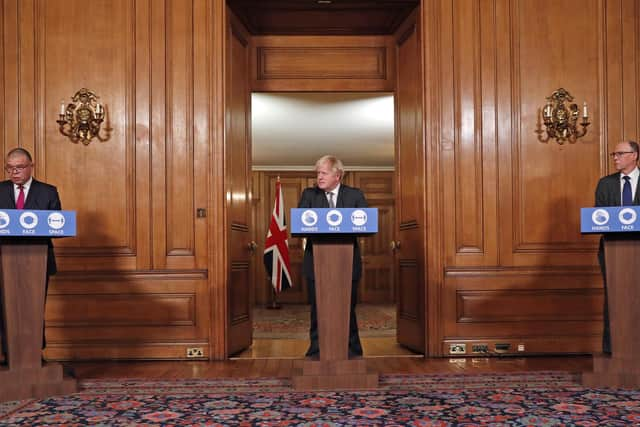Coronavirus Pandemic: The impact on Milton Keynes three years on
and live on Freeview channel 276
Former Prime Minister Boris Johnson announced the UK's first lockdown three years ago this week.
The coronavirus pandemic has had a wide-ranging impact on life in the UK, from health to education and the economy. We looked at the latest data to see how Milton Keynes has changed since the first lockdown.
Advertisement
Advertisement
The most obvious effect the pandemic has had is on people's health.


The latest figures from the UK coronavirus dashboard show more than 220,000 people died as a result of Covid-19 in the UK – of these, 736 were based in Milton Keynes.
But people's health has been affected in other ways, including receiving key check-ups, waiting times on referrals, and their mental health.
For example, cancer waiting times have ballooned since the outbreak of the pandemic.
Advertisement
Advertisement
Just 54.4% of patients in England with an urgent GP referral for cancer treatment were seen within two months in January, the latest NHS England figures show – this is down from 74% in February 2020, while the NHS target is 85%.
In Bedfordshire, Luton and Milton Keynes, 119 of 232 patients (51.3%) were seen within two months.
Jon Shelton, head of cancer intelligence at Cancer Research UK, said: "The Government is falling short of its manifesto promise of improving cancer outcomes in the UK and significantly improving cancers diagnosed at their earliest stage.
A Department of Health and Social Care spokesperson added: "We are working to reduce the 62-day cancer backlog – which has fallen 35% since peaking in 2020 – but we know there is more to do.”
Advertisement
Advertisement
In England, 1.8 million people were estimated to be in contact with mental health services in December – up from 1.4 million in February 2020 and the highest since records began in April 2016.
In the former NHS Bedfordshire, Luton and Milton Keynes CCG area, 31,870 people received support for mental health in December.
The pandemic also caused massive disruption to education, with schools forced to educate children remotely.
The latest Department for Education figures show 1.6 million pupils across England missed at least 10% of their lessons in 2021-22 – more than double the 800,000 who were 'persistently absent' in 2018-19.
Advertisement
Advertisement
In Milton Keynes, the rate of persistently-absent pupils rose from 10.6% in 2018-19 to 21.9% last year.
In Milton Keynes, just 69% of Key Stage 1 pupils achieved the expected standard in reading, 60% in writing, 70% in maths and 78% in science.
Three lockdowns, furlough and restricted spending had long-lasting effects on the British economy. Businesses were forced to close, consumers were unable to spend freely, and many lost jobs and income.
One of the changes that occurred was the move to remote work, and figures showing workplace activity remains well below pre-pandemic levels.
Advertisement
Advertisement
The latest data, which covers October 10 to October 14 last year, shows footfall across the UK remained around 25% lower than a five-week baseline period recorded before the pandemic – in Milton Keynes, workplace activity was 27% down on pre-pandemic levels.
Similarly, 2021 saw 327,000 businesses closed – a 9% increase on the year before and the highest number since 2017.
Of these, 1,820 were closed in Milton Keynes.